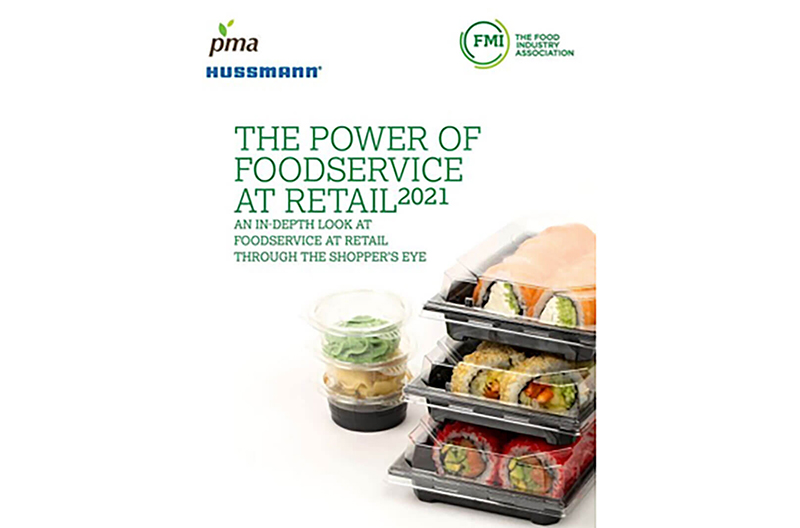FMI, the food industry association, has released its 2021 Power of Foodservice at Retail analysis, a comprehensive review of shoppers’ perceptions and behaviors regarding prepared foods in grocery.
This sixth-annual exploration underscores implications for the industry to capture and expand its pre-pandemic share of the total food dollar.
“Grocery foodservice is at a competitive inflection point when we look at the state of the U.S. food dollar and the fact that 59 percent of Americans expect to cook as many meals at home as they do now,” said Rick Stein, FMI VP of fresh food. “The analysis suggests grocers are positioned to be the ultimate mealtime solution in that 39 percent of consumers view retail foodservice as a substitute for a both a home-cooked meal and a restaurant meal.”
Three significant themes emerged out of the survey that have implications for this competitive landscape:
- Visibility at Retail: More than one-third of consumers, up slightly from 2019, do not recognize their local grocer as a foodservice option due to a lack of menu choices. The report underscores opportunities for increased visibility through marketing and merchandising strategies – all while acknowledging the growing time constraints and cooking fatigue among shoppers to prepare a convenient and nutritious meal. To further promote engagement, shoppers emphasized their desire for retailers to highlight nutrition facts and meal ingredients.
- Hybrid Meals Support Shoppers: The analysis notes that shoppers are looking for comprehensive meal solutions, not just prepared items. In fact, 55 percent of those surveyed note a desire for hybrid meal options – or those that are a mix of semi- and fully-prepared items. It is noteworthy that 64 percent of consumers who typically prepare hybrid meals say they plan their dinners a few days at a time.
- Convenience Enabled by Technology: Technology supports shoppers’ strong desire for convenience with more than half of consumers expressing a desire to order deli-prepared items with a smartphone. The survey also points out significant disparities among generations in how they want to engage in retail foodservice ordering. For example, 20 percent of Gen Z customers prefer ordering from a person versus using their own phone (49 percent) or a kiosk (31 percent), compared with 89 percent of Boomers who prefer ordering from a person.
“Grocers confidently acknowledge the power in convenience-driven retail foodservice, as these programs continue to serve as differentiation strategies for their businesses,” Stein said. “As evidenced in this analysis, with the right formula that caters to the customer with supportive technology, food retailers can increase their significance as a destination for health, well-being and meal solutions.”
The 2021 Power of Foodservice at Retail is prepared by 210 Analytics and made possible by Hussmann Corp. and Produce Marketing Association.
FMI also recently announced its 2021 health and well-being initiative that includes research insights and programmatic support for the food industry. See story, here.

